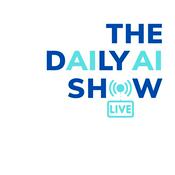Brian Maucere and Beth Lyons open the March 3, 2026 show with Anne Murphy joining early to discuss public reaction to the Anthropic vs OpenAI “Department of War” narrative and how quickly people are sharing guides to switch tools. They reference growth signals for Anthropic/Claude (including app-store ranking chatter and signup momentum) and then pivot into pricing/value talk around premium AI tiers, tokens, and rate-limit anxiety.
Karl Yeh joins mid-show as they cover a Reuters-referenced item about the U.S. Supreme Court declining to hear an AI-generated copyright dispute, and they connect it to “bless and release” realities for AI-made merch. The back half leans into practical workflow talk: demos/side-by-sides for automations and an agentic sales dashboard build, plus a wrap-up on using logs to verify build timelines.
00:00:40 Quick intro + who’s on today (Brian/Beth; Anne joining; mention of a “surprise” later)
00:01:53 Audience reaction to the “Anthropic vs OpenAI / Department of War” discourse, and why switching suddenly feels “easy”
00:09:21 Values/lines in the sand discussion (what people care about most, and why)
00:10:50 Enterprise comms reality: how companies message AI usage/switching when things get “messy”
00:21:32 Growth/momentum talk: Claude/Anthropic adoption signals, app-store buzz, and “memory for free users” mention
00:26:29 Pricing/value debate: Codex/Cloud Code costs, tiers, and the “it’s time saved” framing
00:28:33 Karl joins + pivot into a news item (Supreme Court/copyright + AI-generated works)
00:38:18 Workflow comparison: traditional Make automation vs an agentic dashboard approach for sales reps
00:48:19 Verifying build time the “right” way: using logs/timestamps instead of guessy AI answers
00:53:24 Reliability + rate limits: service status checks, co-work errors, Sonnet elevated errors, and why compute/inference constraints show up
01:01:39 Cloud Code crunches the logs to compute actual build duration (and why it “had to” do real math)
01:04:09 Wrap-up + tomorrow’s lineup notes + sign-off (“Until then, have a great day.”)



